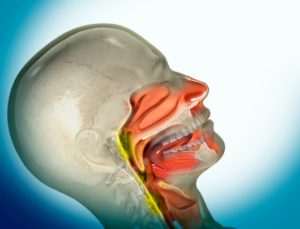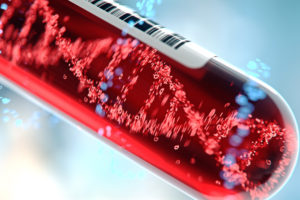Oropharyngeal Cancer FFPE Samples
Bay Biosciences provides high-quality, FFPE tissue samples with matched sera (serum), EDTA plasma and peripheral blood mononuclear cells (PBMC’s), bio-fluids from oropharyngeal cancer patients for research.
The sera (serum) and plasma bio-fluid specimens are processed from oropharyngeal cancer patients peripheral whole-blood using customized collection and processing protocols.

Oropharyngeal Cancer Overview
Oropharyngeal cancer begins in the oropharynx, the middle section of your throat. You may notice a chronic sore throat, difficulty swallowing, and a lump in your throat, neck, or mouth.
The American Cancer Society estimates that in 2023, there will be 54,540 new cases of oral cavity and oropharyngeal cancer. Oropharyngeal cancer originates in the oropharynx, or middle section, of your throat.
You may notice symptoms such as lumps in your throat or neck, difficulty swallowing, and a chronic sore throat.
People who smoke, chew tobacco, or have human papillomavirus (HPV) are more likely to develop oropharyngeal cancer. Treatment may include surgery, chemotherapy, radiation, or targeted therapy.
What is Oropharyngeal Cancer?
Oropharyngeal cancer is a form of head and neck cancer that begins in the oropharynx, or middle section, of your throat. This section of the throat includes the:
- Back one-third of your tongue
- Side and back walls of your throat
- Soft palate
- Tonsils
Oropharyngeal cancer may occur in one or more of these sections at the same time. The majority of oropharyngeal cancers are squamous cell carcinomas, which means they develop in the thin, flat cells lining the oropharynx.
Symptoms Oropharyngeal Cancer
Symptoms of oropharyngeal cancer include:
- A white patch on your tongue or sides of your mouth that doesn’t go away
- Chronic sore throat
- Difficulty swallowing
- Coughing up blood
- Difficulty opening your mouth fully and moving your tongue
- Ear pain
- Lump in your neck, throat, or mouth
- Unexplained weight loss
Causes Oropharyngeal Cancer
While there are still unknowns about how oropharyngeal cancer develops, it’s likely that a combination of genetic, environmental, and lifestyle factors causes this cancer to develop.
The chance of oropharyngeal cancer increases in people who:
- Chew tobacco or betel quid
- Drink alcohol heavily
- Have human papillomavirus
- Previously had head or neck cancer
- Smoke
Prevalence in Males
Oropharyngeal cancers are twice as likely to occur in males compared with females. They are also slightly more common in white individuals than Black individuals.
Onset Age
The average age for people to develop oropharyngeal cancer is 64 years oldTrusted Source. However, people may develop it at any age. People younger than 55 years old make up 20%Trusted Source of people with an oropharyngeal cancer diagnosis.
Are Oropharyngeal Tumors benign or Malignant?
Tumors that develop in the oropharynx may be benign or malignant. Older research from 2008 reveals that 10% of oral and oropharyngeal tumors are benign.
Treatment of Oropharyngeal Cancer
Treatment for oropharyngeal cancer may include:
Your doctor may recommend a combination of these treatments based on:
- Exact type of cancer you have
- Stage of your cancer
- The size and location of any tumors
- Whether it has spread
Because smoking can lead to treatment complications and increase the chances of oropharyngeal cancer returning, your doctor will likely request that you quit smoking as a part of the treatment process.
Outlook of Oropharyngeal Cancer
The 5-year survival rates for patients with cancer that develops in the oropharynx are:
- 59% when localized
- 62% when regionalized
- 29% when it has metastasized to a distant part of the body
For most cancers, the 5-year survival rates are higher when the cancer is localized compared with regionalized. Why this is not the case with cancer in the oropharynx is not fully understood but may be related to the small number of cases available for study.
Survival Rate
The overall 5-year survival rate for oropharyngeal cancer is about 60%.
Patients with HPV-positive oropharyngeal cancer have better survival rates than people with HPV-negative oropharyngeal cancer. But this is partly because HPV-positive oropharyngeal cancer is more common in younger people and those with better overall health.
Mortality Rates
Between 2009 and 2020, mortality rates for oropharyngeal cancer increased by almost 2% per year.
It’s important to remember that everyone’s experience with cancer will be unique. Your outlook with oropharyngeal cancer can be affected by:
- Age and general health
- Exact type of cancer you are diagnosed with
- Patients response to treatment
- The stage of cancer and whether or not it has spread to other parts of the body
It’s important to discuss any questions you have about your prognosis with your doctor, who knows your overall health and can assess how your body is responding to treatment.
Takeaway
Oropharyngeal cancer develops in the oropharynx, or middle part, of the throat. People who smoke, chew tobacco, and have HPV have a higher chance of this cancer. You may have throat pain, difficulty swallowing, and lumps in the throat, neck, or mouth if you have oropharyngeal cancer.
It’s important to tell your doctor if you have risk factors or symptoms of oropharyngeal cancer. They can confirm if you have oropharyngeal cancer with imaging and a biopsy. With early diagnosis and prompt treatment, better health outcomes are possible.

Bay Biosciences is a global leader in providing researchers with high quality, clinical grade, fully characterized human tissue samples, bio-specimens, and human bio-fluid collections.
Samples available include cancer (tumor) tissue, cancer serum, cancer plasma, cancer, peripheral blood mononuclear cells (PBMC). and human tissue samples from most other therapeutic areas and diseases.
Bay Biosciences maintains and manages its own biorepository, the human tissue bank (biobank) consisting of thousands of diseased samples (specimens) and from normal healthy donors available in all formats and types.
Our biobank procures and stores fully consented, deidentified and institutional review boards (IRB) approved human tissue samples and matched controls.
All our human tissue collections, human specimens and human bio-fluids are provided with detailed, samples associated patient’s clinical data.
This critical patient’s clinical data includes information relating to their past and current disease, treatment history, lifestyle choices, biomarkers, and genetic information.
Patient’s data is extremely valuable for researchers and is used to help identify new effective treatments (drug discovery & development) in oncology, and other therapeutic areas and diseases.
Bay Biosciences banks wide variety of human tissue samples and biological samples, including cryogenically preserved at – 80°C.
Including fresh frozen tissue samples, tumor tissue samples, formalin-fixed paraffin-embedded (FFPE), tissue slides, with matching human bio-fluids, whole blood and blood-derived products such as serum, plasma and PBMC.
Bay Biosciences is a global leader in collecting and providing human tissue samples according to the specified requirements and customized, tailor-made collection protocols.
Please contact us anytime to discuss your special research projects and customized human tissue sample requirements.
Types of Biospecimens
Bay Biosciences provides human tissue samples (human specimens) from diseased and normal healthy donors which includes:
- Peripheral whole-blood
- Amniotic fluid
- Bronchoalveolar lavage fluid (BAL)
- Sputum
- Pleural effusion
- Cerebrospinal fluid (CSF)
- Serum (sera)
- Plasma
- Peripheral blood mononuclear cells (PBMC)
- Saliva
- Buffy coat
- Urine
- Stool samples
- Aqueous humor
- Vitreous humor
- Kidney stones (renal calculi)
- Other bodily fluids from most diseases including cancer.
We can also procure most human bio-specimens, special collections and requests for human samples that are difficult to find. All our human tissue samples are procured through IRB-approved clinical protocols and procedures.
In addition to the standard processing protocols, Bay Biosciences can also provide human plasma, serum, and PBMC bio-fluid samples using custom processing protocols; you buy donor-specific collections in higher volumes and specified sample aliquots from us.
Bay Biosciences also provides human samples from normal healthy donors; volunteers, for controls and clinical research, contact us Now.
- 日本のお客様は、ベイバイオサイエンスジャパンBay Biosciences Japanまたはhttp://baybiosciences-jp.com/contact/までご連絡ください。


